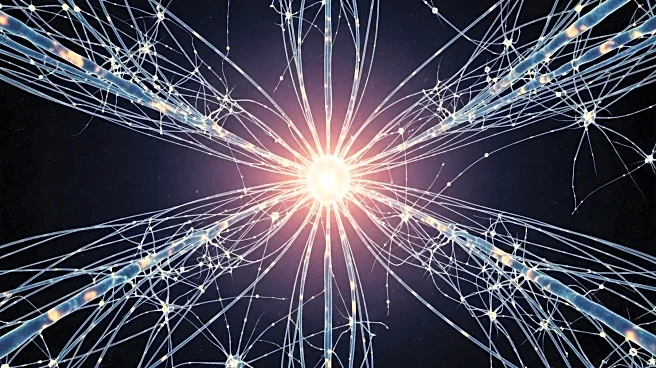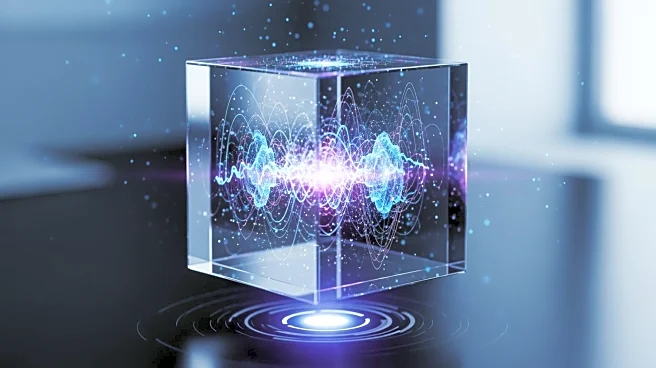What is the story about?
What's Happening?
A recent study has uncovered that the universe's first magnetic fields, created shortly after the Big Bang, were significantly weaker than previously thought. These primordial magnetic fields, which still exist within the cosmic web, were found to be comparable in strength to the magnetism generated by the electrical activity of neurons in the human brain. The research, published in the journal Physical Review Letters, utilized extensive computer simulations to determine that these fields likely had a maximum strength of 0.00000000002 gauss, which is billions of times weaker than a standard fridge magnet. Despite their weakness, these magnetic fields have persisted within the intergalactic cosmic web, a vast structure that connects galaxies across the universe.
Why It's Important?
The findings provide new insights into the early universe's conditions and the formation of cosmic structures. Understanding the nature and strength of these primordial magnetic fields can help scientists unravel the mysteries of the cosmic web, which plays a crucial role in the universe's large-scale structure. The study's results also align with recent observations of the cosmic microwave background, offering a theoretical framework for future research. This knowledge could impact astrophysics by refining models of cosmic evolution and the behavior of magnetic fields in space, potentially influencing how we understand galaxy formation and the universe's expansion.
What's Next?
Future research will likely focus on further exploring the cosmic web using advanced telescopes like the James Webb Space Telescope. Continued observations could enable scientists to create more detailed simulations, testing the hypothesis about the origins and evolution of these magnetic fields. As technology advances, direct observation of primordial magnetic fields may become possible, providing more concrete evidence to support or refine current theories. This ongoing research could lead to a deeper understanding of the universe's formative processes and the role of magnetism in cosmic phenomena.
Beyond the Headlines
The study highlights the interconnectedness of cosmic phenomena and the human brain, drawing intriguing parallels between the universe's magnetic fields and neural activity. This connection underscores the complexity and universality of natural forces, prompting further exploration of how fundamental forces shape both the cosmos and biological systems. The research also raises questions about the potential influence of these ancient magnetic fields on the development of galaxies and other cosmic structures, suggesting a legacy of the universe's earliest moments that continues to impact its present state.

















